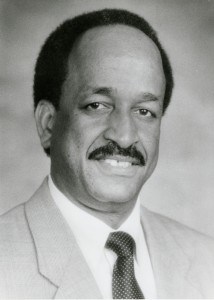 Bell’s Fibe customers in Ontario noticed something unusual in the company’s latest newspaper ads luring potential new signups for the company’s fiber-to-the-neighborhood service.
Bell’s Fibe customers in Ontario noticed something unusual in the company’s latest newspaper ads luring potential new signups for the company’s fiber-to-the-neighborhood service.
Subscribe to Bell Fibe™ Internet and get way more than the cable company for a lot less.
Get super-fast download speeds of up to 25 Mbps – more than double the 12 Mbps on cable.
Watch way more stuff online with 125 GB of usage – more than double the 60 GB on cable.
Plus, share pics and videos more than 12x faster than cable, with upload speeds of up to 7 Mbps.
All this for less than the regular rate you’re paying with cable’s 12 Mbps service.¹See full offer details.¹²
Offer ends October 31, 2011. Available to residential customers in select areas of Rogers’ footprint in Ontario where technology permits. Modem rental required; one-time modem rental fee waived for new customers. Usage 125 GB/month; $1.00/additional GB. Subject to change without notice and not combinable with any other offers. Taxes extra. Other conditions apply.
¹Current as of Sept 29, 2011. Based on customer’s subscription to Rogers’ Express Internet package at the regular rate of $46.99/mo., prior to August 4, 2011.
²Available to new customers who subscribe to Fibe 25 Internet and at least one other select service in the Bundle; see bell.ca/bellbundle. Promotional $33.48 monthly price: $76.95 monthly price, less the $5 Bundle discount, less the monthly credit of $38.47 applicable for months 1-12. Total monthly price after 12 months is $71.95 in the Bundle.
Setting aside the fact Bell’s package costs $71.95 a month after the first year, compared with Rogers’ regular everyday price of $46.99, existing customers were surprised to learn Bell’s usage cap for new customers (located in select areas of Rogers’ competing footprint in Ontario) was 125GB per month. That stood out, because existing customers currently live with a monthly cap of just 75GB per month.
That means new Bell customers, who happen to also have the choice of being served by Rogers Cable, evidently have a considerably less “congested” network that allows a more generous 125GB usage cap over nearby neighborhoods not served by Rogers, where things must be “much worse” to justify the current usage limit of 75GB per month.
Customers call it another example of providers subjectively setting usage limits not according to technical need, but competitive reality.
“If having separate rates by province wasn’t enough, now we have different rates based on the neighborhood,” shared one Toronto Bell customer. “I will need to call them to adjust this.”
Bell’s website provides conflicting information to existing customers over exactly what their usage cap is. Despite the advertised 125GB cap promoted online, many existing customers are still finding 75GB to be their monthly limit. Customers are getting some satisfaction calling Bell and threatening to cancel service over the discrepancy. Don’t bother with the regular customer service representatives — readers report they can do nothing for you. Instead, tell Bell you are canceling service, get transferred to the Customer Retentions Department, and then tell them you will stay if you get the new customer promotion that comes with the 125GB usage cap. If you ask, Bell will often configure your account with the promotion noted above, which comes with the automatically more generous usage cap.
Stop the Cap! has always believed usage caps have nothing to do with the network congestion and “fair use” excuses providers like Bell have repeatedly argued. They exist because market forces allow them to, and when competitors arrive with more generous allowances (or none at all), incumbent providers suddenly find enough capacity to be more generous with their customers. At least some of them.


 Subscribe
Subscribe








